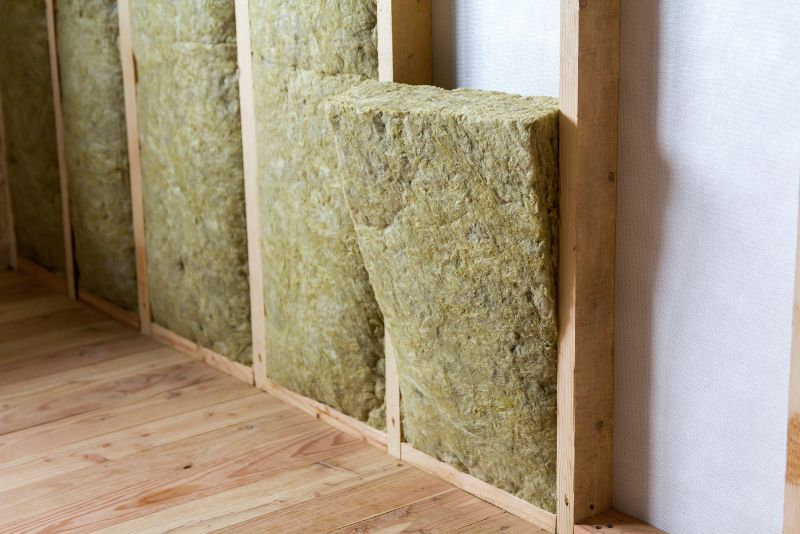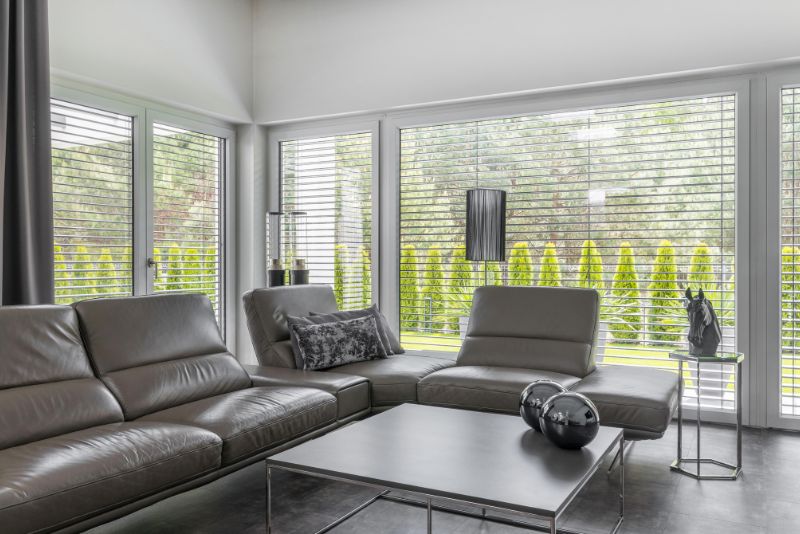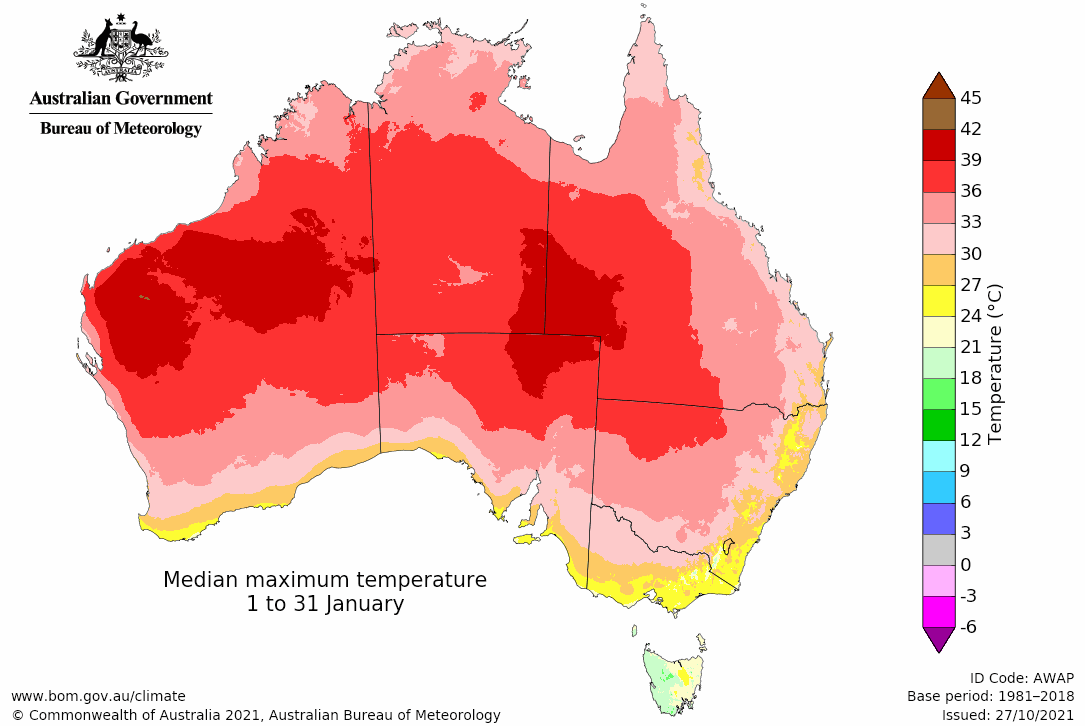Choosing the right air conditioning unit is essential for maintaining a comfortable home environment, especially during the sweltering Australian summers. Selecting the wrong size or type of unit can lead to inefficiency, high energy bills, and insufficient cooling. This guide will help you understand how to choose the right air conditioner for your home by considering factors such as size, type, positioning, cooling efficiency, surroundings, energy efficiency, and more.
In Brisbane? Contact the team at Advanced Climate Solutions for professional advice today on 0403 254 272.
Determining the Right Size Air Conditioner
Air Conditioning Size Calculator Formula
Room Size
The size of the room or area that needs cooling is the primary factor in determining the appropriate size of the air conditioner. To calculate the cooling capacity required, measure the length and width of the room in meters and multiply them to find the total area.
Calculation Steps:
- Measure the width of the room.
- Measure the length of the room.
- Multiply the length and width to get the area.
- Multiply the area by 0.15 kW to find the ideal cooling capacity (in kW).
For example, a room that is 8 meters long and 5 meters wide has an area of 40 square meters. The ideal air conditioner size for this room is: 40 sqm×0.15 kW= 6 kW
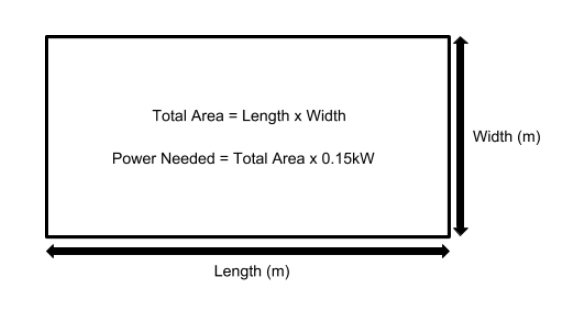
Additional Considerations
If your house doesn’t have standard ceiling heights or standard insulation and window placement, you will need to consider the additional factors listed below.
Air Conditioner Positioning
The positioning of your air conditioner significantly impacts its efficiency. Air conditioners should be placed as high as possible in the room to ensure the entire space is cooled evenly. This prevents frequent on/off cycling that wastes energy and ensures the thermostat accurately reads the room temperature.
Cooling Efficiency: Bigger Isn’t Always Better
Choosing an air conditioner that is too powerful for the room can lead to high energy bills and uncomfortable humidity levels. A properly sized unit will cool the room gradually and remove excess moisture effectively. Overpowered units can cycle on and off too quickly, leading to clammy conditions and increased wear and tear on the unit.

Surroundings
Consider the insulation, number and size of windows, and climate when determining the best size air conditioner for your home. Well-insulated homes with fewer windows in a milder climate will require less cooling capacity.
Insulation:
A poorly insulated house will require more cooling, necessitating a larger air conditioner.
Windows:
More windows or larger windows can increase the cooling capacity needed due to heat loss through glass.
Climate:
Hotter climates require more powerful units to maintain a comfortable temperature.
Map provided by BOM (Tool location) (Image location)
Ducted vs. Split System Air Conditioners
When deciding between ducted and split system air conditioners, it’s important to understand the benefits and considerations of each to determine which is best suited to your needs.
Ducted Air Conditioning
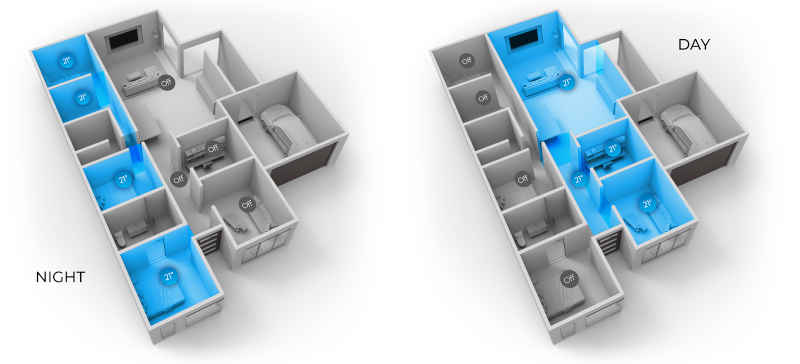
Benefits:
- Central Cooling: Ducted air conditioning systems are designed to cool the entire house using a single air conditioning unit. The cooled air is distributed through a network of ducts to various rooms. This can be more cost-effective than installing individual split systems in multiple rooms.
- Longer Life Expectancy: Ducted systems typically have a longer lifespan, averaging 15 to 20 years, compared to split systems.
- Discreet Design: Only the air vents are visible in the rooms being cooled, as the main unit is hidden behind walls or ceilings, preserving the aesthetics of your home.
Considerations:
- Higher Upfront and Installation Costs: Ducted air conditioning units are more expensive to purchase and install due to the complexity of the system and the need for ductwork throughout the house.
- Longer Installation Time: The installation process is more invasive and can take longer than installing a split system, as it requires setting up ducts in multiple areas.
Split System Air Conditioning
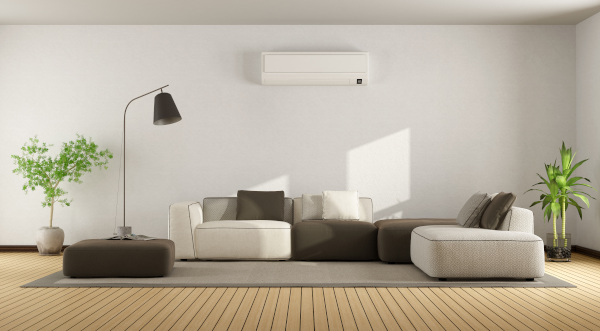
Benefits:
- Lower Upfront Cost: Split systems are generally cheaper to purchase and install than ducted systems. The installation is less complex and can usually be completed in a day.
- Targeted Cooling: Split systems allow you to cool specific rooms as needed. If you only need to cool one or two rooms, this can be a more efficient and cost-effective option.
- Cheaper Repairs: Replacement parts for split systems are typically more affordable. Additionally, if you have multiple split systems and one unit breaks down, you only need to repair or replace that specific unit, rather than the entire system.
Considerations:
- Noise & Appearance: Part of the split system unit is installed within the room, which can affect the room’s decor and generate more noise compared to a ducted system.
- Multiple Units Needed for Whole-House Cooling: To cool an entire house with split systems, you would need to install multiple units, which can add up in cost and may not be as efficient as a ducted system.
Other Factors to Consider
Energy Efficiency
Energy efficiency directly affects running costs. Check the energy rating label to compare models, and use the GEMS Registration Database for additional performance data. Look for units with higher star ratings for better energy efficiency.
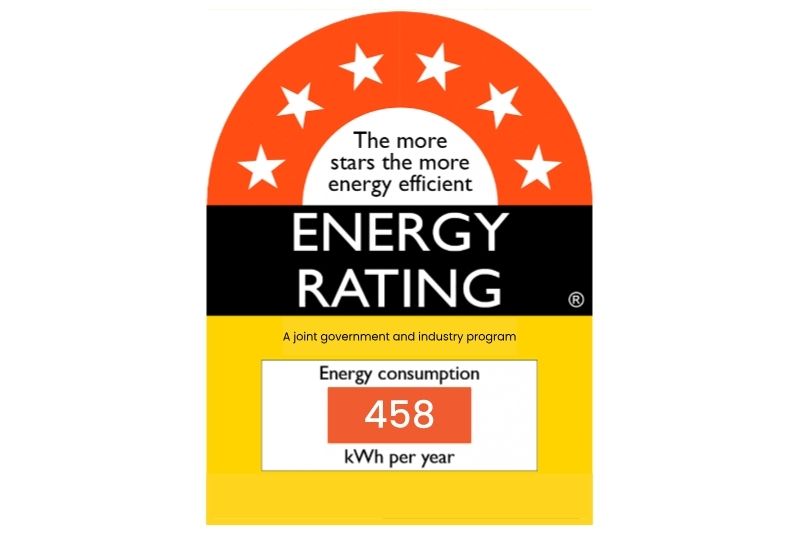
Warranty
Consider the length and terms of the warranty provided by the manufacturer. A longer warranty can save money on repairs and replacements in the long run. Ensure the unit is installed according to the manufacturer’s instructions to maintain the warranty.
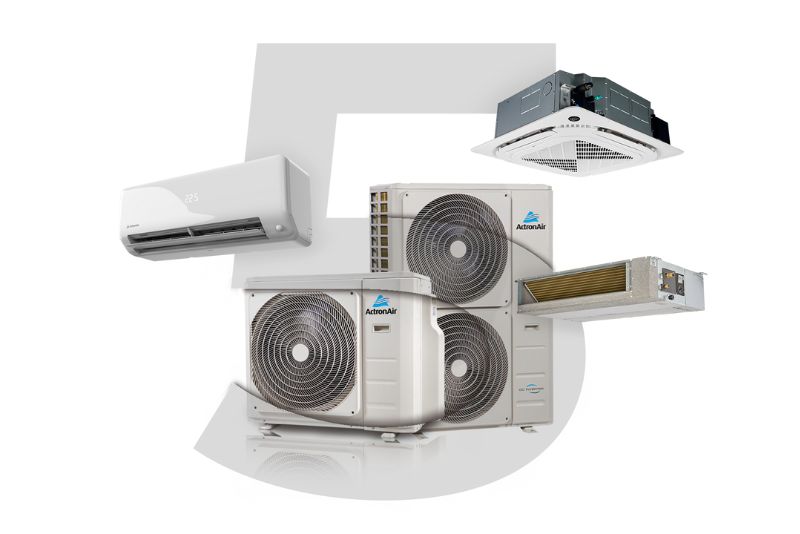
Unit and Installation Cost
Take into account the purchase price, installation cost, and running costs. Finding a company that supplies and installs the unit can be more cost-effective and ensure proper installation.
Manufacturer Reputation
Choose a reputable manufacturer known for quality and customer service. An established brand is more likely to provide reliable support and spare parts in the future. Research customer reviews to gauge satisfaction with the manufacturer’s products and after-sales service.
Repair or Replace?
If your air conditioner breaks down, consider the following factors to decide whether to repair or replace it:
Age of the Unit
Air conditioners typically have a lifespan of 10 to 15 years. If your unit is older than 15 years and requires significant repairs, it might be more cost-effective to replace it. Older units are less energy-efficient and more prone to frequent breakdowns.
Efficiency and Performance
Assess whether your air conditioner is still cooling effectively. Over time, air conditioners lose efficiency due to wear and tear. If your unit is struggling to maintain a comfortable temperature, it may be time to consider a replacement.
Energy Bills
An increase in energy bills without a change in usage patterns can indicate that your air conditioner is running less efficiently. Newer models are more energy-efficient and can significantly reduce your electricity costs.
Cost of Repairs
Use the formula: Repair Cost×Age (years)=Value If the value exceeds $5000, replacement is generally the better option. For example, if you are quoted $600 for repairs and your air conditioner is 10 years old, the value is $6000, indicating replacement may be more cost-effective.
Frequency of Repairs
Frequent breakdowns and repairs can add up over time. If you find yourself calling for repairs multiple times a year, replacing the unit with a more reliable, energy-efficient model can save you money and hassle in the long run.
Technological Advances
Newer air conditioners come with advanced features such as programmable thermostats, variable speed compressors, and smart home compatibility. Upgrading to a modern unit can improve comfort, convenience, and energy efficiency.
Contact The Team at Brisbane’s Advanced Climate Solutions Today
Selecting the right air conditioner involves careful consideration of various factors to ensure efficient and effective cooling. Whether you choose a ducted system for whole-house cooling or a split system for targeted cooling, it’s important to evaluate your specific needs, budget, and long-term costs. For personalized professional advice and quality air conditioning services in Brisbane, contact Brisbane’s Advanced Climate Solutions at 0403 254 272. Our experts can help you find the perfect air conditioning solution for your home.

